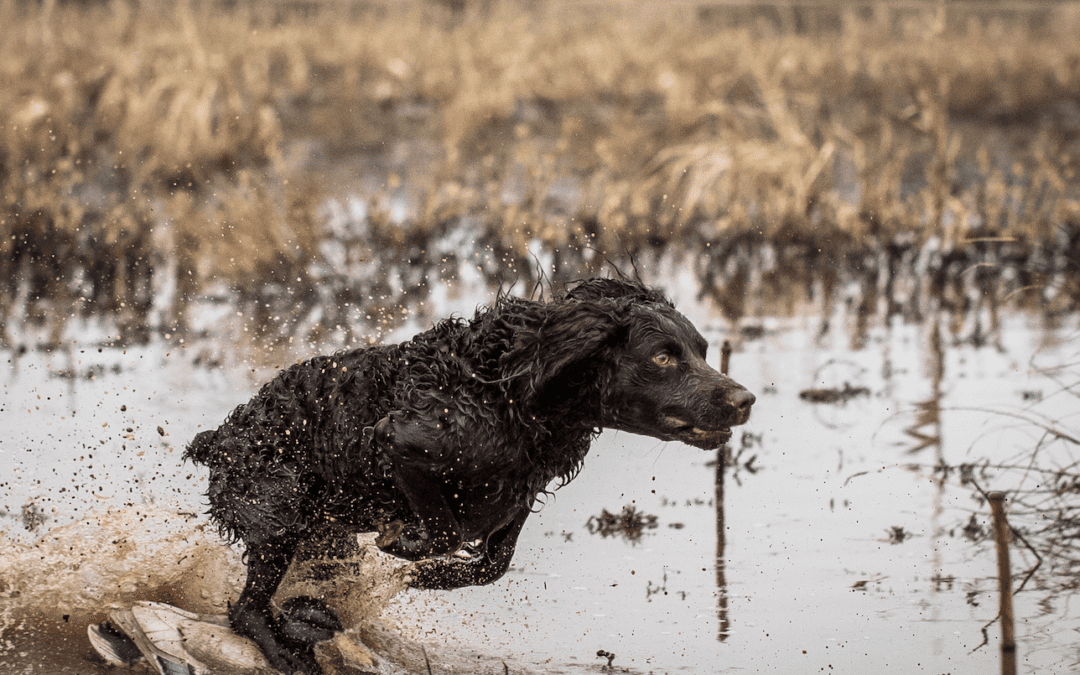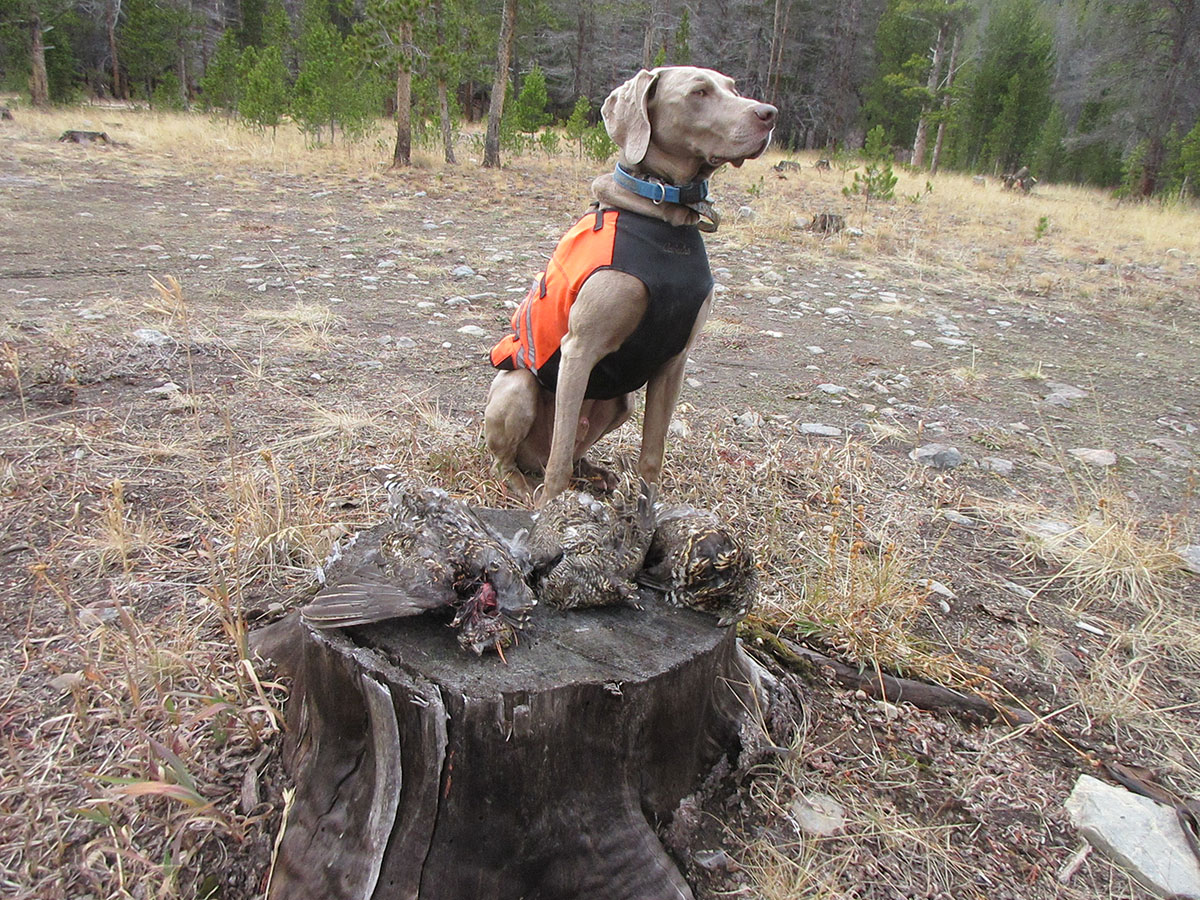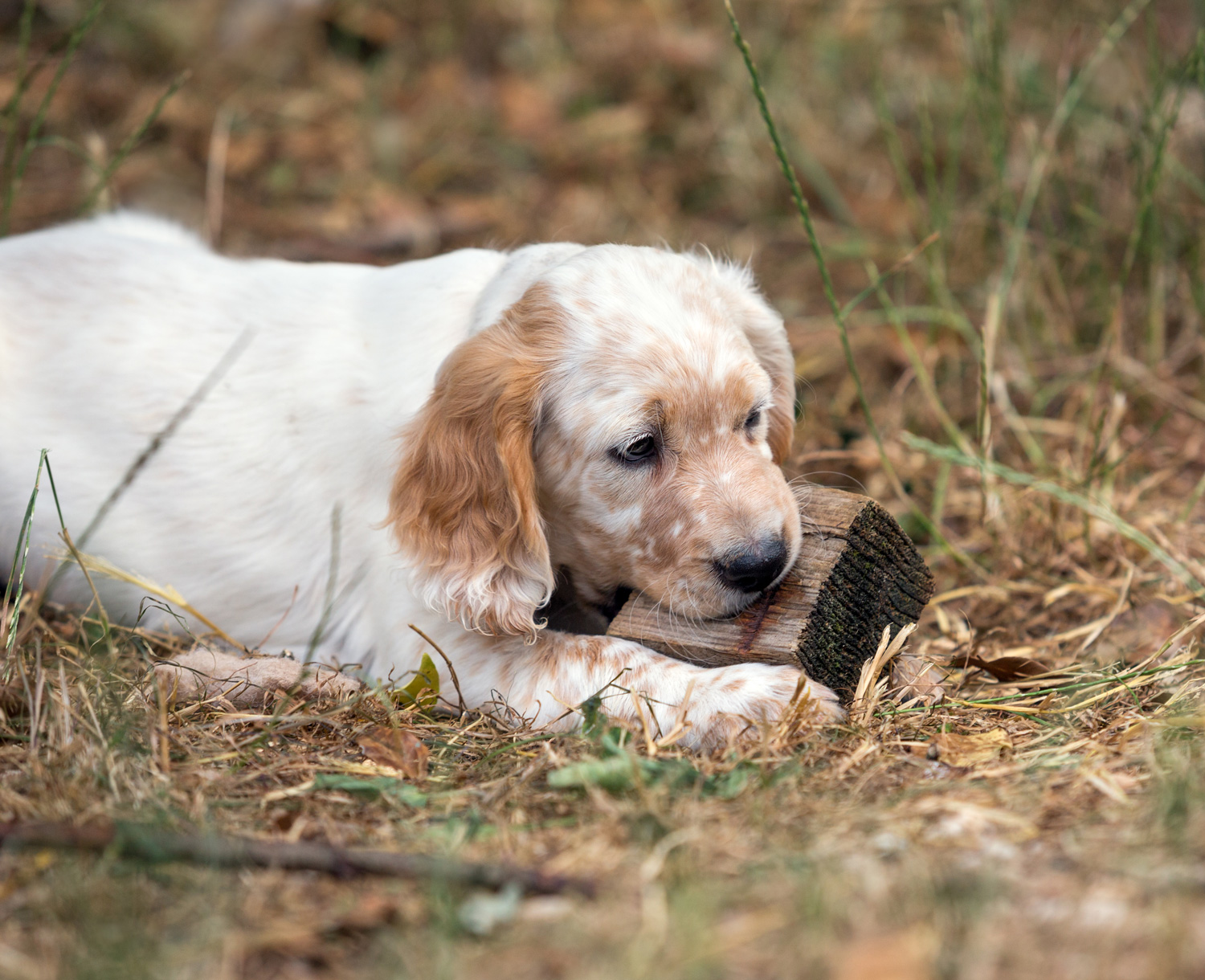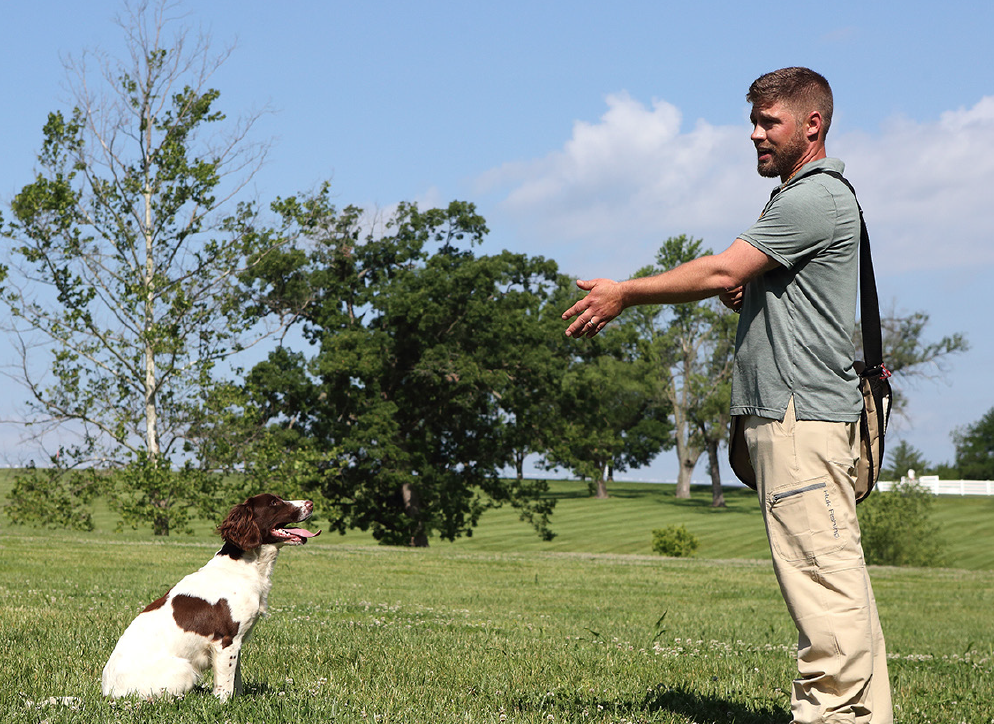The diet you choose to feed your dog can have a big impact on their ability to perform at their peak.
SPONSORED CONTENT
Hard charging performance dogs—like pointers, setters, Labs, English cockers, GSP’s and many, many others— are wired to work. Their work requires fuel appropriate to their exercise level, nutrients to support good physical health for their extra workloads, and antioxidants to help with post-exercise recovery. Feeding your sporting dog isn’t difficult, but it should involve more than just filling up a bowl. The diet you choose to feed your dog can have a big impact on their ability to perform at their peak.
To perform at high levels, optimal digestion and nutrient absorption are key for sporting dogs. Look for diets like Eukanuba’s Premium Performance formulas, which contain solid ingredients that are finely ground. Finely-ground carbohydrates from corn meal, barley and grain sorghum (a cereal) can be more efficiently processed by the digestive system which helps optimize nutrient absorption. Ingredients like insoluble fibers, prebiotics and beet pulp also help ensure nutrient absorption and help replace cells lost during activity. The addition of psyllium in a diet aids in the passage of stool.
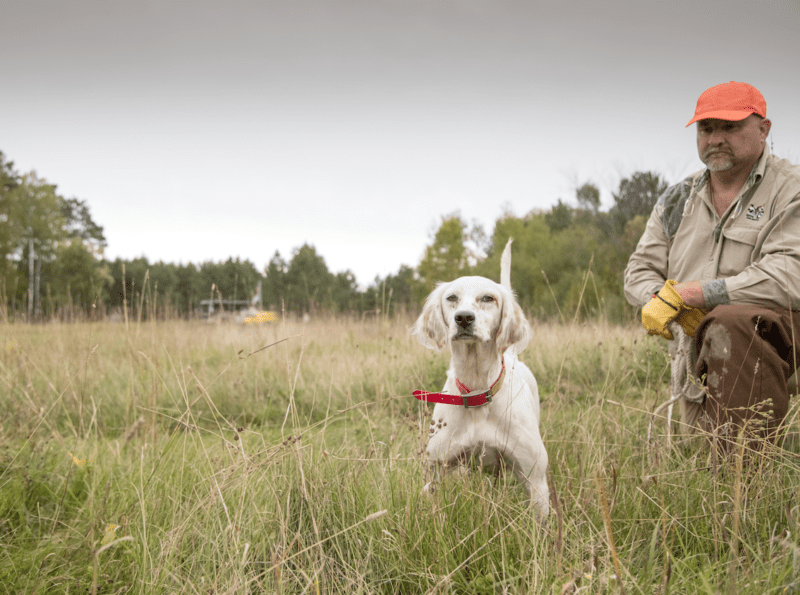
From running and casting to flushing, swimming and retrieving, strenuous exercise can challenge the digestive system of hardworking sporting dogs. Their bodies endure mechanical stress from the vibrations caused by exercise as well as a physical stress associated with increased levels of cortisol. As a result, dogs can experience gastrointestinal upset. Dogs with upset GI systems can be low on energy and their attention may be less sharp on the task at hand. Look for formulas that include fermentable fiber in the form of fructooligosaccharides (FOS) and beet pulp which play a prebiotic role by stimulating the production of short chain fatty acids to nourish the intestine cells. FOS also provides a prebiotic effect by stimulating beneficial bacteria
Selecting the right energy source based on your dog’s activity level is another key factor in selecting a diet for your sporting dog. Some dogs need fuel for quick, intense bursts of activity while others need endurance to help them along their half or full day’s work. Nutrition tailored to support these different activity levels helps dogs work at their peak potential.
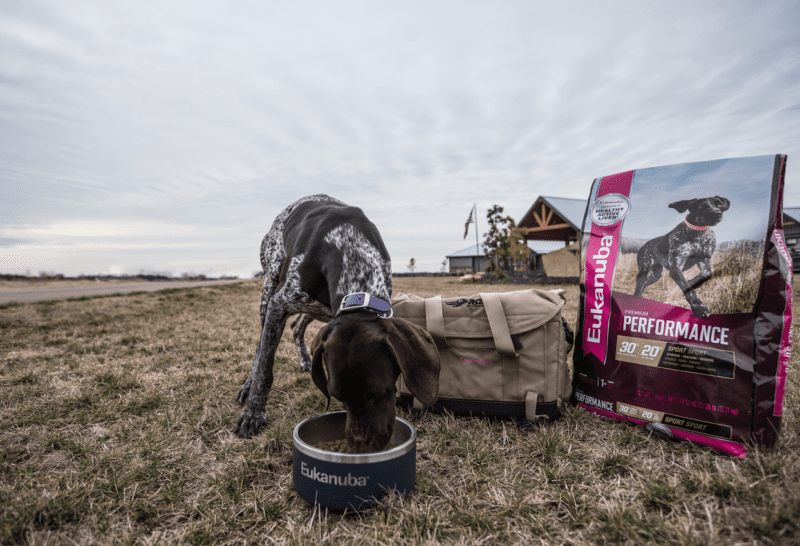
Rigorous workloads require sporting dogs to convert energy from calories into mechanical energy, the kind that fuels their movement. Cut loose a cocker for a flush and you’ll see anaerobic exercise. Short, intense activity requires more power per second since their movements are at a higher, more concentrated frequency. That type of immediate energy comes from carbohydrates which are found in ingredients like corn, wheat and sorghum. When digested they become energy known as glucose. Some of the glucose is used immediately. Unused glucose is stored as glycogen in the liver and muscles and is delivered to the body when the dog rockets out again. With these dogs working anaerobically in a short, intense burst followed by a period of rest, oxygen isn’t used to break down glucose. Eukanuba’s Premium Performance 21/13 SPRINT formula was designed for dogs working anaerobically up to three minutes at a time with a combination of 21% protein and 13% fat and 43% of the caloric energy sourced from carbs.
Carbohydrates serve other purposes, too. They fuel the nervous system and support brain activity and muscular response. Fiber, a type of carb, helps stool move efficiently through a dog’s system and helps maintain blood sugar levels.
 A brace of pointers running hard for half a day along field edges and casting through grasses work aerobically (requiring oxygen). They need sustained energy that comes from fat. Fat provides energy used during longer runs. The longer the dog’s activity, the more fat they will need. Fats are made up of building blocks called fatty acids which are grouped according to their chemical structures. In Eukanuba’s Premium Performance line, omega-3 fatty acids come from fish oils while omega-6 fatty acids come from chicken fat, as well as plant and vegetable oils. Fats are highly digestible and are among the first types of energy to be metabolized during aerobic exercise. Energy from fat is concentrated and helps provide dogs with lasting energy. Eukanuba’s Premium Performance 30/20 SPORT formula was designed for dogs working aerobically for up to four hours with a combination of 30% protein and 20% fat with 47% of the caloric energy sourced from fat. Eukanuba also has a formula for dogs working aerobically during shorter durations up to two hours at a time. The Premium Performance 26/16 EXERCISE formula has 26% protein and 16% fat with 41% of that caloric energy sourced from fat.
A brace of pointers running hard for half a day along field edges and casting through grasses work aerobically (requiring oxygen). They need sustained energy that comes from fat. Fat provides energy used during longer runs. The longer the dog’s activity, the more fat they will need. Fats are made up of building blocks called fatty acids which are grouped according to their chemical structures. In Eukanuba’s Premium Performance line, omega-3 fatty acids come from fish oils while omega-6 fatty acids come from chicken fat, as well as plant and vegetable oils. Fats are highly digestible and are among the first types of energy to be metabolized during aerobic exercise. Energy from fat is concentrated and helps provide dogs with lasting energy. Eukanuba’s Premium Performance 30/20 SPORT formula was designed for dogs working aerobically for up to four hours with a combination of 30% protein and 20% fat with 47% of the caloric energy sourced from fat. Eukanuba also has a formula for dogs working aerobically during shorter durations up to two hours at a time. The Premium Performance 26/16 EXERCISE formula has 26% protein and 16% fat with 41% of that caloric energy sourced from fat.
Nutrition can also play an important role in positively impacting post-exercise recovery of hard-working dogs. Even the best conditioned dogs can tire over time. Their energy levels can drop and their mental sharpness can soften. Some of their fatigue may come from oxidative stress and the buildup of free radicals. Free radicals, the by-product of strenuous activity, are a normal part of a dog’s everyday life. Increased workload results in more free radicals being released in the dog’s body. Large amounts of free radicals can slow down the rebuilding of cells lost during rigorous exercise. By reducing free radical production, dogs may recover more quickly.
Antioxidants like Vitamin E, Vitamin C, lutein, beta-carotene and taurine, among others help reduce oxidative stress and free radicals. In a study* of Iditarod dogs, the ones that run a 938-mile course across 8 to 15 days, the results found that dogs with a higher pre-race plasma Vitamin E concentration were twice as likely to finish the race.
Recovery from daily work and training is important for a dog to work at his peak. Proper conditioning and optimal nutrition are both important for the recovery process. Nutrition that contains a custom-blend of antioxidants like Eukanuba’s Premium Performance line aids post-exercise recovery times and helps prepare dogs to perform at their peak tomorrow.
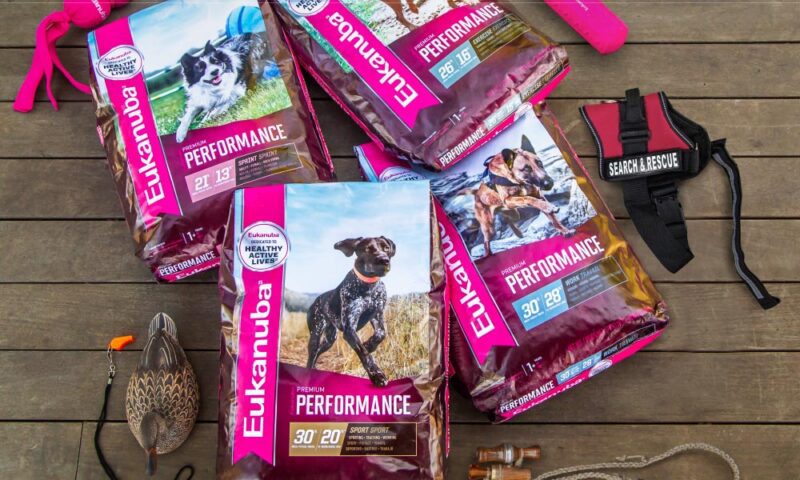
Once you’ve selected an optimal diet for your sporting dog, it’s also important to determine how much to feed him. Factors such as body condition score, in-season versus off-season workloads and timing should all be considered in your feeding plan.
Let’s face it, sporting dogs don’t stop when they’re tired, they stop when they’re done. Give a pointer, setter, shorthair or Lab a choice between working or taking a nap, odds are they’ll take work at every opportunity. The next time you look at your dog making multiple blinds, running fields and snaking through covers, think about what you’re feeding him. Nutrition can help elevate him to his peak potential.
* Piercy RJ et al. Association between vitamin E and enhanced athletic performance in sled dogs. Med. Sci. Sports Exerc. 2001, 33 : 826-833

